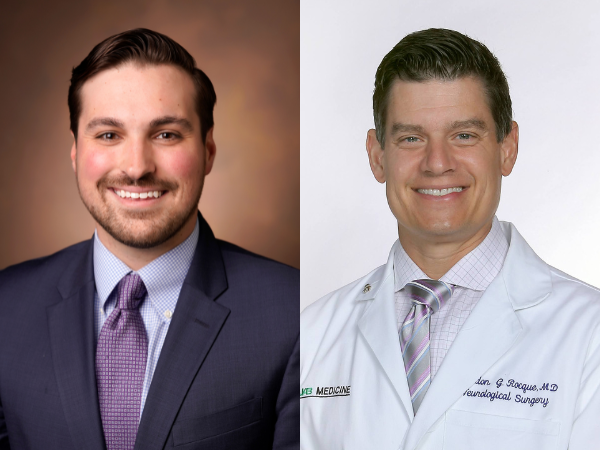
Brandon Rocque, M.D., M.S., and Andrew T. Hale, M.D., Ph.D., from the University of Alabama at Birmingham Department of Neurosurgery recently received individual pilot grants from the Mary Heersink Institute for Global Health (MHIGH).
Rocque and Hale are part of the fourth cohort of MHIGH pilot grant awardees for 2025.
These grants support collaborative global health research between UAB and international partners and aim to foster innovative research that addresses critical global health challenges.
Rocque, a pediatric neurosurgeon, received funding for his project, “Development of a Wiki Toolkit for Intraoperative Neuromonitoring Using a Collaborative Model Between COA and Three Hospitals in Vietnam.” In collaboration with other experts across UAB, Children’s of Alabama and multiple hospitals in Vietnam, the project will create a wiki-based training resource focused on intraoperative neuromonitoring (IONM). The toolkit is intended to provide easily accessible educational content for neurosurgical teams in resource-limited environments, with the goal of improving surgical safety and patient outcomes worldwide.
Hale, a neurosurgical resident, received funding for his project, “Cerebral Organoids as a Model of Acquired Hydrocephalus.” In collaboration with UAB Department of Bioinformatics Associate Professor Zechen Chong, Ph.D., and others from the University of Cape Town in South Africa, Hale’s project will utilize cerebral organoids—3D models of brain tissue—to study the mechanisms behind acquired hydrocephalus, a condition that remains difficult to treat globally.
Both projects highlight the UAB Department of Neurosurgery’s growing global footprint and its ongoing commitment to improving neurosurgical care through international research, education and collaboration.
Portions of this story were adapted from original reporting by Kayla Glandon.